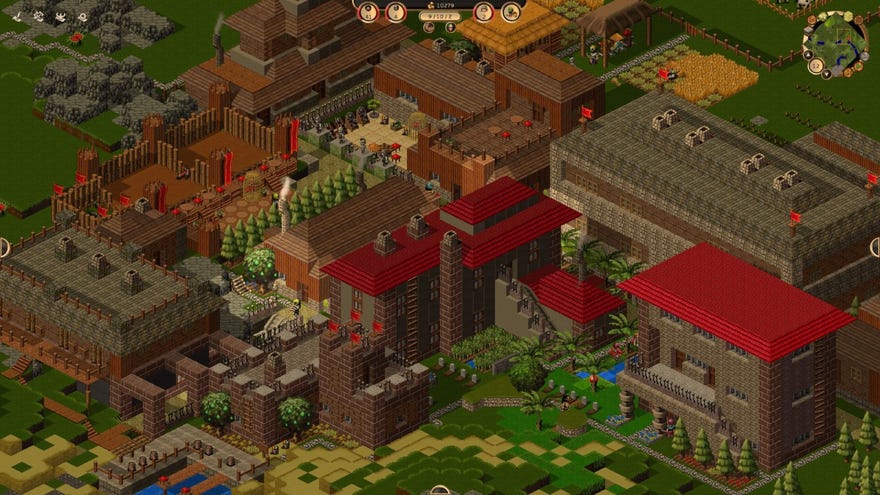Have You Played... Towns?
The boys are never coming back
You might have played Towns. These days, it’s interesting as a cautionary tale from the history of the early access model, but at the time (2012) it was very much headed towards being my kind of thing. A sort of Reverse Dungeon Keeper, it tasked you with running a town on top of a load of stacked-layer dungeons, and building your settlement to a point where more and better heroes would come to adventure in the underworld beneath.
You couldn’t control your heroes, nor even your townspeople. All you could do was build buildings, tile by tile, in a fashion that really reminded me of construction in my beloved Dwarf Fortress. What you built determined what you got, hero-wise. Rooms built on the second floor of a tavern would bring in various types of bruisers, depending on the decor you laid out. Beyond that… I forget. It’s hard to tell now, what was in the game, what was nearly in the game, and what was just planned feature creep in the long spiral towards the game’s death in 2014.
I forget the exact details of the death spiral (the boss man wrote about it at the time, mind). What I do remember was the atmosphere radiating from the increasingly tense “update” posts from the developers, as more and more time went by with no new content released.
Back then, games launching into early access were a big deal. The model had progressed from being “that thing Minecraft did”, but it wasn’t nearly as commonplace as it is now. Steam’s official programme had yet to be launched, for a start, and the business of selling unfinished games was something developers were working out by trial and error.
In Towns’ case, sadly, it was mostly error. After making a bunch of money when the project was a novelty, and then seeing the gold dry up as their game became old news, the three man team behind Towns clearly became very burned out. And yet, since they had a small army of people who’d paid for the game and expected to see results - many, presumably, were hoping for the game to follow the same meteoric trajectory as Minecraft - they didn’t feel able to just stop.
We’ve all seen the forum threads for games like this. Developers posting wearily about the personal circumstances slowing down work. Players making sympathy eyebrows at them, saying “of course - family comes first” or the like, but with a veiled deadline behind their words: they’ll wait, but not forever. The dance was repeated so many times, with everyone’s stress level creeping further and further towards outright hostility, to the point where it was hard to believe this was all about a cheery little town building game.
Towns was promising; it could have been really good. But when it all fell apart and the project died, I felt nothing but relief on behalf of the developers.

